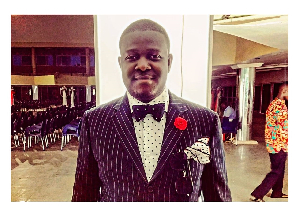Renowned sports broadcaster and astute businessman, Mohammed Alhassan, has called for a comprehensive five-year sports development plan to revitalize Ghana’s sporting landscape.
Alhassan, a former head of sports at Radio Gold, believes that a well-structured and adequately funded plan is crucial to salvaging the image of Ghanaian sports, which has faced recent challenges such as limited international success, inadequate infrastructure, and inconsistent funding.
Alhassan also highlighted the need for a robust impact assessment system to track the progress of the plan and identify areas for improvement. “Regular evaluations will allow us to make necessary adjustments and ensure that our resources are utilized optimally,” he added.
Furthermore, Alhassan advocated for a strong emphasis on local partnerships and community engagement.
“Involving local communities and NGOs will not only leverage valuable resources but also foster a sense of ownership and participation in the development of Ghanaian sports,” he stated.
Alhassan encouraged the new Mahama government to take this bold transformative step and urged all stakeholders to take action on this proposed plan.
He believes that a successful sports development plan will not only enhance Ghana’s international sporting standing but also boost the economy.
In a recent interview, Alhassan outlined the key pillars of a strategic plan for Ghanaian sports development from 2025 to 2029:
*Talent Identification and Development:
*Grassroots Development: Invest heavily in grassroots programs to identify and nurture young talent across various sports disciplines.
*Elite Athlete Support: Provide comprehensive support systems for elite athletes, including access to world-class training facilities, nutritionists, and sports psychologists.
*Scholarships and Academies: Establish sports academies and scholarship programs to provide talented athletes with opportunities for education and professional development.
* Coach Education and Development:
*Upskilling Coaches: Implement rigorous coach education programs to enhance the skills and knowledge of coaches at all levels.
*International Exposure: Facilitate international exchange programs and workshops for coaches to learn from best practices around the world.
*Mentorship Programs: Establish mentorship programs to connect experienced coaches with aspiring young coaches.
*Infrastructure Development:
*Modern Facilities: Upgrade existing sports infrastructure and construct new, state-of-the-art facilities, including stadiums, training grounds, and sports halls.
*Accessibility: Ensure that sports facilities are accessible to all segments of the population, including people with disabilities.
*Community Sports Centers: Develop community sports centers to provide affordable access to sports facilities and programs for all.
*Increased International Exposure:
*Participation in International Competitions: Increase participation in major international competitions, including the Olympics, Commonwealth Games, and other global sporting events.
* International Friendly Matches: Organize regular international friendly matches and tournaments to provide valuable competitive experience for Ghanaian athletes.
*Overseas Training Camps: Facilitate overseas training camps for national teams to compete against top-level opposition.
*Special Emphasis: Prioritize investment in football, athletics, and boxing, where Ghana has historically achieved significant international success.
*Regional and Inter-African Competitions: Increase participation in regional and inter-African competitions to enhance competitive experience and regional cooperation.
*Good Governance and Sustainability:
*Transparent and Accountable Administration: Ensure transparent and accountable administration of sports funds through regular audits and financial reporting.
*Diversified Funding Sources: Explore diverse funding sources, including private sector partnerships, corporate sponsorships, and international grants.
*Funding Allocation: Allocate at least $20 million annually towards talent identification, coach development, exchange programs, regional and inter-African competitions, and other key areas.
*Long-term Sustainability: Develop a long-term sustainability plan to ensure continued funding and support for sports development beyond the five-year period.
Alhassan emphasized the need for a budget of USD 100 million over five years to effectively implement this strategic plan. He stressed the importance of diversifying funding sources beyond government allocation, exploring avenues such as private sector partnerships and international grants.
“We must ensure that every dollar invested in sports delivers maximum value,” Alhassan emphasized. “This requires a focus on cost-effectiveness, transparency, and accountability in all aspects of sports administration.”



